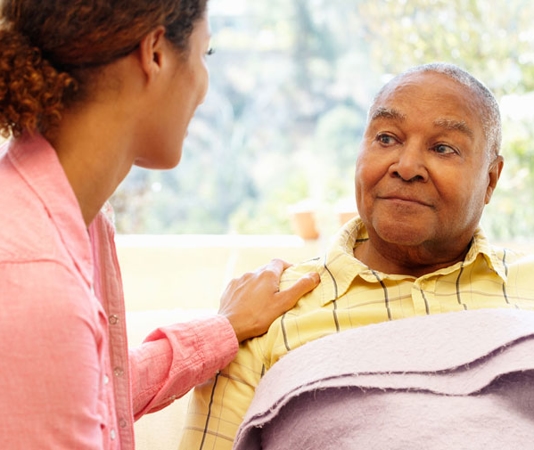It only takes a few minutes of watching the documentary, Alive Inside, to see the meaningful impact that listening to music can have on people with dementia and Alzheimer’s.
Filmmaker Michael Rossato-Bennett chronicles the exact moment that people who appear to be non-responsive to the world around them, suddenly spark to life when they hear familiar music. The film centers around social worker Dan Cohen, founder of the non-profit organization, Music & Memory, as he visits people who have Alzheimer’s or dementia and puts headphones on them so they can hear music that they love. With the cameras rolling, these same people “wake up” from their silence and begin talking and smiling.
Dance to Your Own Beat
Celia Pomerantz used music to tap into her mother’s lifelong love of salsa music when her mother was in the late stage of Alzheimer’s disease. Mrs. Pomerantz chronicled her mother's Alzheimer's in a Kindle book, "Alzheimer's: A Mother Daughter Journey."
"As soon as I felt her lose herself to Alzheimer's, I would bring in my iTunes and play Spanish music for her," said Mrs. Pomerantz. "Then I could convince her to do anything -- we would dance over to the shower or out to get a meal."
Mrs. Pomerantz intuitively found what experts say is a useful tool in helping people with Alzheimer's disease and other forms of dementia.
"Music speaks to a person's feelings, so it is a sensory and not an intellectual experience," said Martha Tierney of the Alzheimer's Association.
"When my mother would hear music, she would give life to the music," Mrs. Pomerantz said." It gave her a confidence, peace, and serenity."
Hit the Right Note
Alzheimer's robs people of their short-term memory, explained Ms. Tierney, but their long-term memory can remain largely intact. "They maintain vivid memories of the past," she said. "A woman may look at her elderly husband and not recognize him as her husband because he does not look 35 years old anymore. So if you were to play music from that time period it would speak to her current reality."
Many people have found that live music can be particularly welcome for many Alzheimer's patients. This can be in the form of someone singing old camp songs, Christmas carols, church hymns, small symphonies and more.
"A person with Alzheimer's feels like everything is unfamiliar all of the time," Ms. Tierney said. "Allowing them to spend time with music that they recognize and retain memories of gives them the sense of familiarity in a world that is otherwise extremely confusing."
Find out more about how therapeutic music can be for loved ones with Alzheimer's and other illnesses at the American Music Therapy Association's website.




.1803151925550.jpg)
